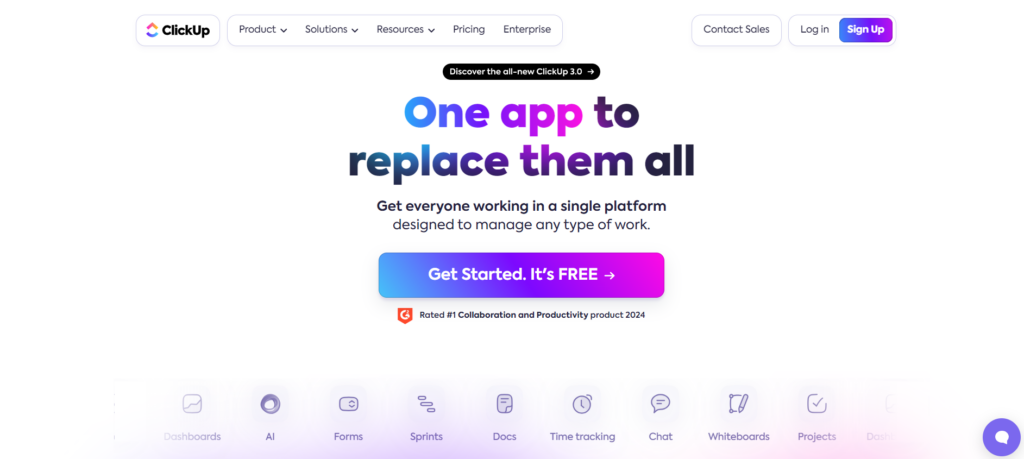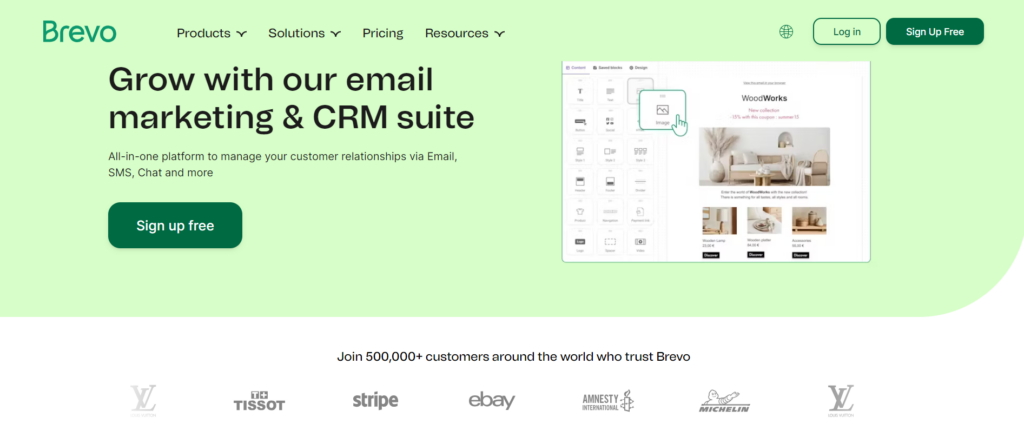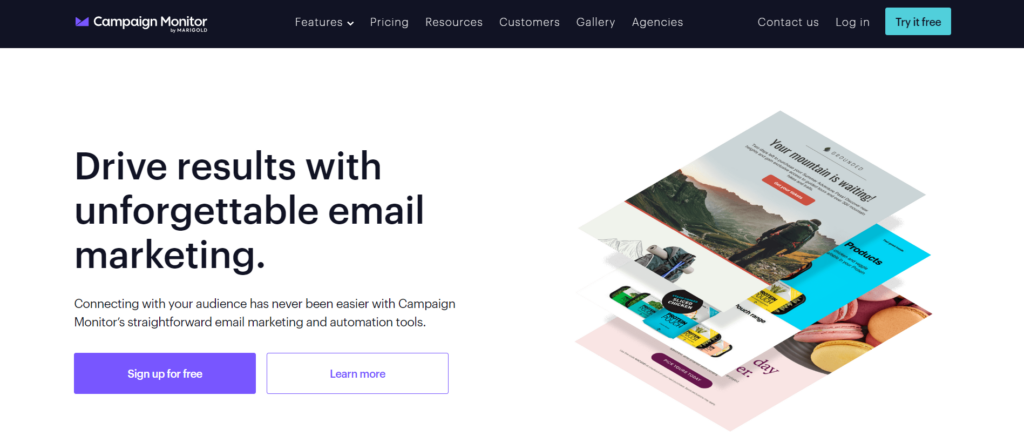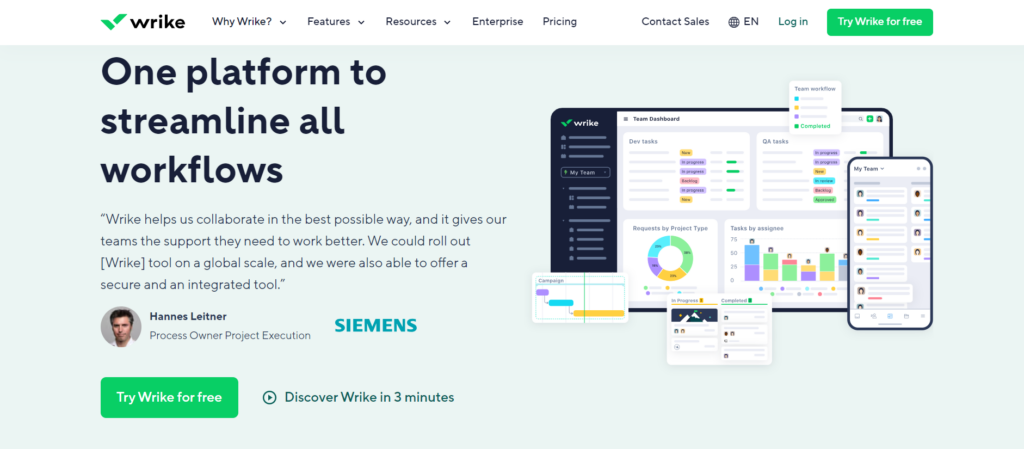In 2024, marketing automation platforms have become indispensable tools for businesses looking to streamline their marketing efforts, personalize customer interactions, and measure the impact of their strategies efficiently. Over the years, these platforms have evolved from simple email marketing solutions to sophisticated systems that offer comprehensive capabilities across various channels.
In this article, we’ve selected the best from the world of marketing automation. Our criteria for selecting the best platforms includes evaluating features like automation capabilities, integration options, user experience, and scalability. By focusing on these key aspects, businesses can choose a platform that not only meets their current needs but also supports their growth over time.
Key Features to Look for in Marketing Automation Platforms
Selecting the right marketing automation platform in 2024 means looking beyond basic functionalities to features that truly drive growth and enhance customer experience. Here are the essential features to consider:
- Email Automation: Automated email campaigns tailored to customer actions and preferences, crucial for engaging customers at scale.
- Customer Segmentation: Advanced segmentation tools that allow for personalized marketing messages based on demographics, behavior, and purchase history.
- Analytics and Reporting: Comprehensive analytics for tracking campaign performance, customer engagement, and ROI, enabling data-driven decisions.
- AI Capabilities: AI-driven insights for predicting customer behavior, optimizing campaigns, and personalizing interactions.
These features align with 2024’s marketing goals by fostering personalized engagement, optimizing marketing efforts, and driving better business outcomes through informed decision-making.
1. ClickUp: Marketing Automation Platform

ClickUp stands out for its comprehensive approach, combining project management with marketing automation, making it an attractive choice for teams looking for an all-encompassing platform to manage their workflows and marketing efforts.
- Unique Features:
- Highly customizable workflows
- Integrated task and project management
- Native time tracking and goal setting features
- Pricing: Offers a free tier with basic features; paid plans start from $5/user/month with more advanced features and integrations.
- Pros:
- Versatile platform that combines project management with marketing automation
- User-friendly interface that’s easy to navigate
- Strong collaboration and communication tools within the platform
- Cons:
- Can be overwhelming due to its broad range of features
- Some automation features may require a learning curve to set up effectively
- Suitability:
- Small to medium-sized businesses looking for an all-in-one solution for project management and marketing automation
- Teams that benefit from integrated task management alongside marketing campaigns
- Comparative Analysis:
- Innovates by blending project management with marketing automation, offering a unique solution for teams that manage both simultaneously
- Highly praised for its ease of use, especially in navigating and customizing the platform
- Offers robust integration capabilities, making it easy to connect with other tools and services, although some integrations are limited to higher-tier plans
2. Brevo: Tailored Marketing Automation

Brevo, previously known as SendInBlue, is redefining marketing automation with its all-in-one platform designed for businesses aiming for rapid growth.
- Unique Features:
- Comprehensive CRM functionality
- Advanced email marketing with deep personalization
- SMS marketing integration
- Pricing: Offers a free plan with basic features; premium plans start from $25/month, scaling up with advanced features and higher sending limits.
- Pros:
- User-friendly interface suitable for non-technical users
- Strong focus on email and SMS marketing strategies
- Effective for both B2B and B2C segments
- Cons:
- Limited customization options for landing pages
- Analytics could be more detailed for higher-tier plans
- Suitability:
- Small to large businesses looking for an easy-to-use platform with strong email and SMS marketing tools
- Companies that value direct customer communication channels
- Comparative Analysis:
- Stands out for its straightforward approach to email and SMS marketing, making it accessible to marketers of all skill levels
- While easy to use, it might lack some of the advanced analytics and customization features of its competitors
- Offers seamless integration with a variety of tools, though it’s particularly strong in direct marketing channels
Brevo’s rebranding reflects its commitment to serving businesses of all sizes with a keen focus on simplifying direct marketing channels, making it an excellent choice for those prioritizing email and SMS campaigns.
3. Campaign Monitor: Email Marketing Focused

Campaign Monitor streamlines email marketing with its powerful, yet user-friendly tools designed for impactful email campaigns.
- Unique Features:
- Drag-and-drop email builder
- Extensive template library tailored to various industries
- Advanced segmentation and personalization
- Pricing: Starts with a Basic plan at $9/month, with increasing features in higher tiers; Premier plan offers full access to advanced features.
- Pros:
- Intuitive interface, ideal for beginners
- High-quality, customizable email templates
- Strong deliverability rates
- Cons:
- Limited multi-channel marketing features beyond email
- Advanced automation and segmentation features are limited to higher-priced plans
- Suitability:
- Small to medium-sized businesses focusing primarily on email marketing
- Marketers looking for a simple yet powerful tool for creating, sending, and analyzing emails
- Comparative Analysis:
- Excels in ease of use, particularly in creating and deploying email campaigns with minimal technical knowledge
- While innovative in email marketing, it lacks broader marketing automation features found in platforms like ClickUp or Brevo
- Strong integration capabilities with popular services and apps, though primarily centered around enhancing email marketing efforts
4. Wrike: Project Management Meets Marketing Automation

Wrike stands at the intersection of project management and marketing automation, offering a versatile platform that helps teams collaborate, plan, and execute marketing strategies effectively.
- Unique Features:
- Custom workflow automation
- Real-time performance dashboards
- Cross-functional team collaboration tools
- Pricing: Offers a free plan for basic use; Professional plan starts at $9.80/user/month, with advanced features available in higher tiers.
- Pros:
- Extensive project management features integrated with marketing automation tools
- Highly customizable to fit various team sizes and workflows
- Supports a wide range of integrations with marketing and productivity tools
- Cons:
- Can be complex to set up and customize due to its extensive features
- Some marketing automation features may require integration with third-party tools
- Suitability:
- Medium to large businesses needing a robust platform for managing complex marketing projects
- Teams looking for a comprehensive tool that combines project management with marketing automation
- Comparative Analysis:
- Innovates by blending project management with marketing automation, offering more in-depth planning and execution tools than typical marketing-focused platforms
- Offers a steep learning curve but unparalleled customization and integration capabilities
- Not as focused on direct marketing automation like Campaign Monitor or Brevo, but excels in project execution and team collaboration
Find Your Perfect Match in the Marketing Maze
Navigating through the vast array of marketing automation platforms can be a daunting task. The sheer number of options, each with its own set of unique features, pricing models, and capabilities, can make the selection process feel overwhelming. However, identifying the right platform is crucial for your business’s success. This is where the guidance of seasoned experts becomes invaluable.
Flying V Group, a full-service digital marketing agency, stands ready to demystify this process for you. By leveraging our deep industry knowledge and expertise, we can help you choose the marketing automation solution that best fits your needs, ensuring your marketing efforts soar to new heights.
Trust in the specialists at Flying V Group to navigate you through the complexities and lead your business to success.
FAQs
What is a marketing automation platform?
A marketing automation platform is a software tool that automates marketing tasks, such as email campaigns, social media postings, and lead nurturing processes, to streamline marketing efforts and increase efficiency.
Which is the best marketing automation software?
The best marketing automation software depends on your business needs. Platforms like ClickUp, Brevo, Campaign Monitor, and Wrike offer diverse features catering to different requirements, from email marketing to project management integration.
Which type of CRM is used for marketing automation?
CRM systems designed for marketing automation often include features like lead management, customer segmentation, and campaign management. Examples include Salesforce, HubSpot, and Oracle, which offer integrated marketing automation capabilities.
What was the first marketing automation platform?
The first marketing automation platform is widely considered to be Unica, launched in the mid-1990s. Unica provided early versions of marketing automation features, focusing on personalized messaging and customer segmentation.
What is the difference between CRM and marketing automation platform?
CRM (Customer Relationship Management) software focuses on managing customer interactions and data throughout the customer lifecycle. In contrast, marketing automation platforms specialize in automating marketing tasks to target customers with automated messages across various channels.






0 Comments